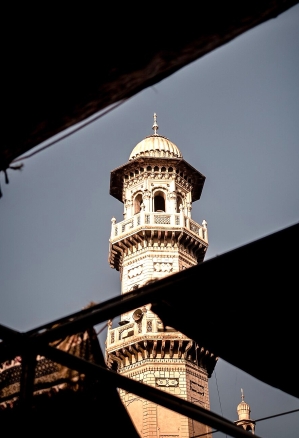
Days after a Christian’s throat was slit in Pakistan over a false blasphemy allegation arising out of refusal to renounce his faith, a Hindu was shot dead after he refused to convert to Islam, sources said.
Nadeem Naath, a 56-year-old Hindu, was shot in the head by a Muslim, Muhammad Mushtaq in Peshawar city, the capital of the northwestern Khyber Pakhtunkhwa province, on Saturday (March 29). The suspect was arrested the next day following protests by local Hindus as well as Christians, the sources said.
In a statement to the Peshawar police, Naath’s brother, Sagar Ameen, said that Mushtaq had been pressuring his brother to convert to Islam for several days.
After Naath refused, Mushtaq shot him in the head, according to Ameen’s statement.
The slain Hindu had reportedly worked as a sanitation worker. Most of the more than 1,400 Hindu families in Peshawar work as sweepers and sewage cleaners.
On March 21, a Muslim used a cutter blade to slash the jugular vein of a 22-year-old Christian, Waqas Masih, in Sheikhupura District of Punjab Province, on allegations that he had committed blasphemy by touching an Islamic textbook “with unclean hands.” Timely medical assistance saved the Christian’s life, and he was recovering in a hospital.
After regaining consciousness, Masih wrote a statement from his hospital bed in which he stated that Iftikhar accused him of desecrating a copy of an Islamiyat Islamic textbook with “unclean hands” and attacked him. He also stated that Iftikhar had engaged him in religious discussions and pressured him to convert to Islam on various occasions.
The victim’s father, Riyasat Masih, told Christian Daily International-Morning Star News the family believed Iftikhar falsely used the blasphemy allegation to target Waqas because he was not surrendering to his demands for conversion.
Samson Salamat, chairman of the Rwadari Tehreek (Movement for Equality), criticized the Pakistan government for not legislating against forced conversions of religious minorities, particularly underage Christian and Hindu girls, despite repeated incidents and evidences.
“Every day we hear reports of forced conversion of minor girls, and now in the month of March alone, two men from the Christian and Hindu communities have been attacked for refusing to change their faith,” Salamat said. “How much more blood will be spilled for the government to realize the seriousness of this critical issue?”
The Rev. Rueben Qamar, moderator of the Presbyterian Church of Pakistan, also condemned the murder of the Hindu and demanded justice for the grieving family.
“In most cases, the criminals escape punishment as the poor families of the victims succumb to pressure and settle for a compromise,” Qamar told Christian Daily International-Morning Star News. “This should not happen in this case as well as in the case of Waqas Masih. All human lives are precious, regardless of their faith affiliations, and the government must ensure that the perpetrators of such violent crimes carried out in the name of religion must not escape prosecution.”
The senior priest also demanded the government prioritize legislation against forced conversions as innocent lives were being taken or jeopardized from citizens simply because they refused to abandon their faith.
On March 11, religious freedom advocates speaking at a side event during the 58th Regular Session of the U.N. Human Rights Council (HRC) in Geneva strongly condemned the deterioration of human rights in Pakistan, particularly continued abuse of the country’s harsh blasphemy laws and forced conversions of minority girls.
Addressing the gathering, Charlie Weimers, a member of the European Parliament, reviled Pakistan’s blasphemy laws, describing them as “weapons of terror against religious minorities.”
“Christians and others in Pakistan face mob violence, wrongful imprisonment, and forced conversions,” Weimers said, adding that August 2023 riots in Jaranwala – where 26 church buildings were torched and multiple homes and businesses of Christians were ransacked – exposed the complete absence of justice for Christians.
The European Parliament in 2021 called on Pakistan to amend its blasphemy laws and urged targeted sanctions on Eritrean officials and international jurisdiction over crimes of Nicaraguan dictator Daniel Ortega, but nothing has changed since then, Weimers said.
“The European Union must stop enabling Pakistan’s persecution machine,” he said. “Trade, aid and visas must be conditional on real human rights reforms, and sanctions must be imposed on violators.”
Pakistan, whose population is more than 96 percent Muslim, ranked eighth on Open Doors’ 2025 World Watch List of the most difficult places to be a Christian.





